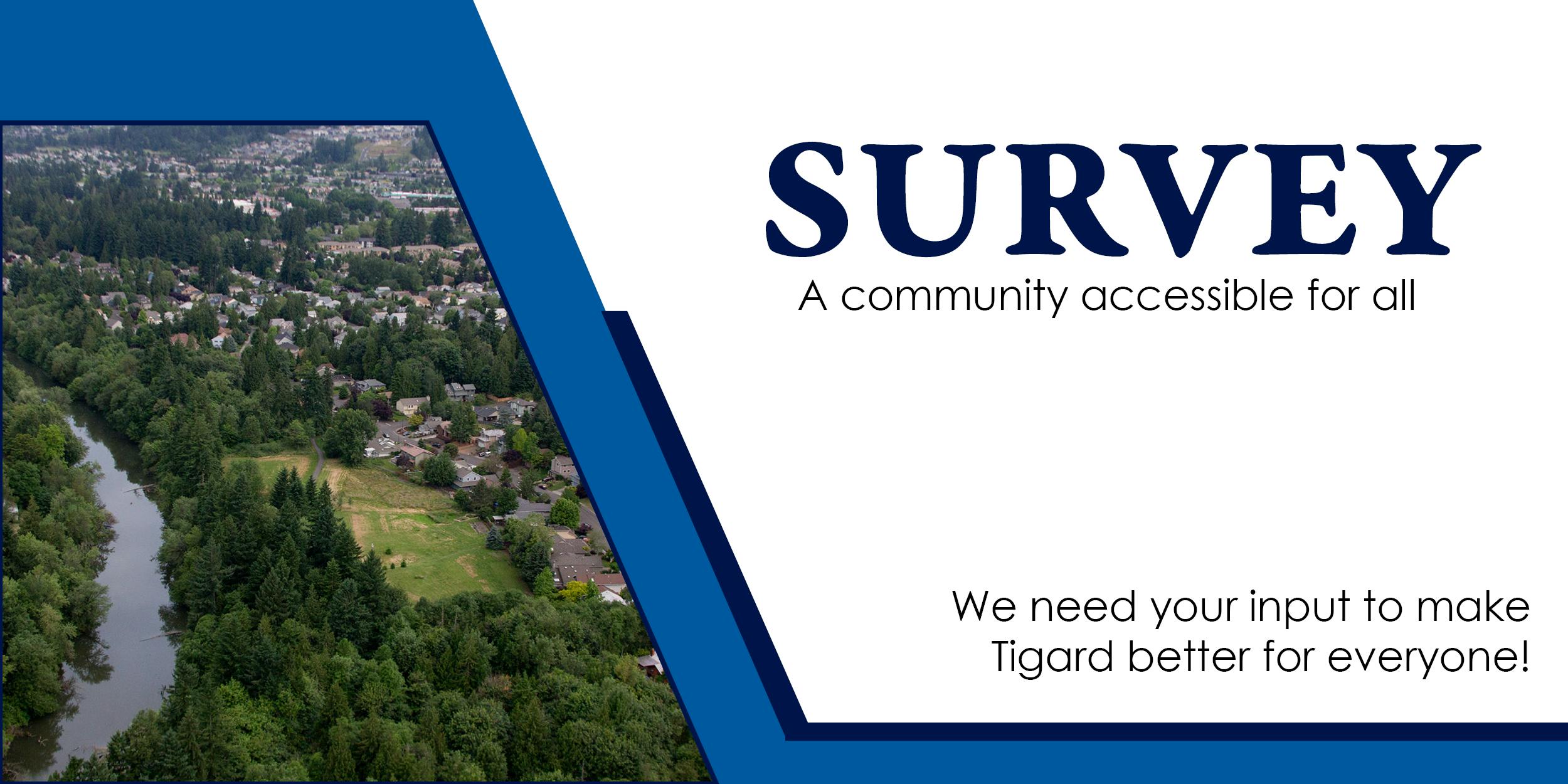Key Dates
July → September 2019
PHASE 6: PUBLIC INPUT INTO THE DRAFT SELF-EVALUATION AND TRANSITION PLAN
The ADA Focus Group reviews the draft Plan and provide comments prior to the public review draft. The Plan is posted to this web page and hard copies will be available at designated locations to collect public comment.
April → September 2019
PHASE 5: PREPARATION OF THE ADA SELF-EVALUATION AND TRANSITION PLAN
During the final phase, the ADA Self-Evaluation and Transition Plan is developed. Once completed, the Plan will include:
* ADA Transition Plan requirements and process;
* Methodology employed for Plan development;
* Prioritization and scheduling process;
* Identification of the ADA Coordinator;
* ADA grievance procedure;
* Public outreach process for Plan development;
* Recommendations for modifications to policies, services, and practices;
* Transition Plan phasing schedule; and
* Program accessibility guidelines, standards, and resources.
* ADA Transition Plan requirements and process;
* Methodology employed for Plan development;
* Prioritization and scheduling process;
* Identification of the ADA Coordinator;
* ADA grievance procedure;
* Public outreach process for Plan development;
* Recommendations for modifications to policies, services, and practices;
* Transition Plan phasing schedule; and
* Program accessibility guidelines, standards, and resources.
March 2018 → March 2019
PHASE 4: RIGHT-OF-WAY EVALUATION
The right-of-way evaluations involve the assessment and inventory of ADA barriers within the public right-of-way for adherence to the existing ADA Standards. The evaluation involves the following tasks:
* Developing procedures for evaluating right-of-way facilities;
* Conducting an evaluation of curb ramps, sidewalks, and pedestrian signals;
* Identifying ADA barrier removal actions; and
* Involving the ADA Focus Group in the identification of issues and drafting barrier removal priorities for the right-of-way.
* Developing procedures for evaluating right-of-way facilities;
* Conducting an evaluation of curb ramps, sidewalks, and pedestrian signals;
* Identifying ADA barrier removal actions; and
* Involving the ADA Focus Group in the identification of issues and drafting barrier removal priorities for the right-of-way.
March → September 2018
PHASE 3: FACILITY EVALUATIONS
The facility evaluations involve the assessment and inventory of ADA barriers within City buildings, parks, and trails for adherence to the existing ADA Standards and Oregon Structural Specialty Code. The evaluation involves the following tasks:
* Inventorying City facilities for evaluation and identifying public access locations;
* Conducting evaluations of the City’s buildings, parks, and trails;
* Identifying barrier removal actions; and
* Involving the ADA Focus Group in the identification of issues and drafting barrier removal priorities for buildings, parks, and trails.
* Inventorying City facilities for evaluation and identifying public access locations;
* Conducting evaluations of the City’s buildings, parks, and trails;
* Identifying barrier removal actions; and
* Involving the ADA Focus Group in the identification of issues and drafting barrier removal priorities for buildings, parks, and trails.
March → June 2018
PHASE 2: POLICY AND PROGRAM EVALUATION
During the policy and program evaluation phase of the project, a comprehensive review of City policies, services, and practices is conducted to ensure that they are non-discriminatory to people with disabilities. The evaluation involves the following tasks:
* Meeting with City staff to administer a questionnaire regarding City practices;
* Reviewing City policy documents, programs, and services;
* Reviewing the City’s standard and specifications;
* Identifying modifications to City programs, services, practices, standards, and specifications; and
* Involving the ADA Focus Group in the identification of issues and review of recommendations for modifications to City policies, services, and practices.
* Meeting with City staff to administer a questionnaire regarding City practices;
* Reviewing City policy documents, programs, and services;
* Reviewing the City’s standard and specifications;
* Identifying modifications to City programs, services, practices, standards, and specifications; and
* Involving the ADA Focus Group in the identification of issues and review of recommendations for modifications to City policies, services, and practices.
February → March 2018
PHASE 1: PROJECT INITIATION AND ON-GOING MANAGEMENT
The City of Tigard initiated the project during February of 2018. As part of the project initiation, the City gathered information on existing policies, procedures, practices, and facilities for evaluation. The City also formed an ADA Focus Group to provide insights throughout all phases of the planning process.

